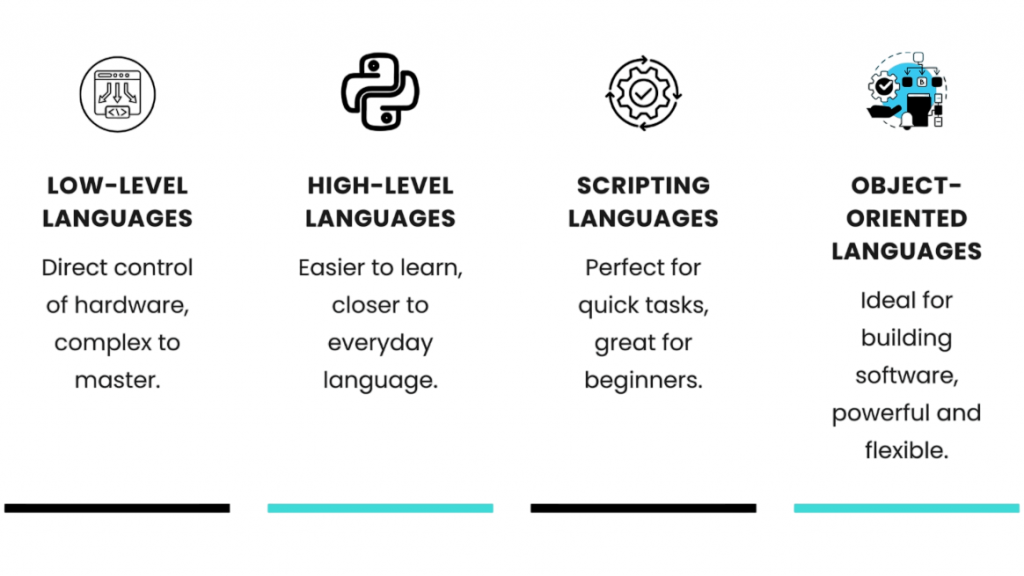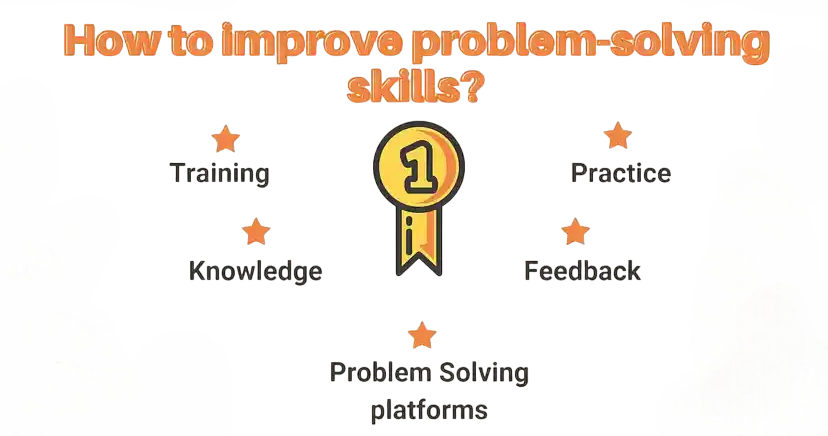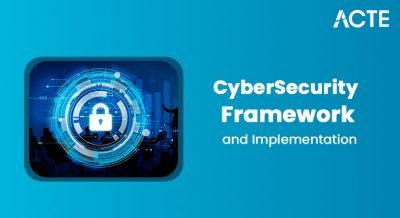
- How to Become a Programmer?
- Why Learn Programming?
- Choosing a First Language
- Basics of Programming Logic
- Learning Resources
- Working on Small Projects
- Understanding Data Structures
- Version Control (Git)
- Joining Communities
- Building a Portfolio
- Problem Solving on Platforms
- Internships and Freelancing
- Career Options
- Conclusion
How to Become a Programmer?
Becoming a programmer is one of the most rewarding and flexible career paths in today’s technology-driven world. Whether you’re aiming to develop software, build websites, create mobile apps, or automate systems, programming is a foundational skill that opens doors across various industries. However, starting can feel overwhelming, especially with the wide array of languages, tools, and technologies available. To simplify your entry into programming and build a strong foundation, exploring Python Training reveals how Python’s beginner-friendly syntax, versatile libraries, and real-world applications make it an ideal first step for aspiring developers. The journey to becoming a proficient programmer involves building fundamental knowledge, practicing regularly, and staying current with evolving tech trends.
Interested in Obtaining Your Python Certificate? View The Python Developer Course Offered By ACTE Right Now!
Why Learn Programming?
- Programming is more than just writing code, it’s about solving problems and creating tools that can improve efficiency, productivity, and even everyday life. Learning to program enhances logical thinking and problem-solving skills. It empowers you to bring your ideas to life, automate repetitive tasks, and understand the digital systems we interact with daily. Moreover, programming skills are in high demand, offering lucrative job opportunities and the flexibility to work in various domains, from gaming and finance to healthcare and education.
- Technology is embedded in almost every aspect of modern life. From smartphones to smart homes and from business software to social media platforms, programming drives it all. Learning to code equips you with the power to create meaningful applications and systems that can improve people’s lives. It gives you a competitive advantage, especially in fields that demand digital transformation and innovation. In the age of artificial intelligence, big data, and automation, programming has become a core skill that transcends industries.
- Selecting your first programming language depends on your goals. For beginners, Python is often recommended due to its simple syntax and wide application in fields such as web development, data science, and automation. JavaScript is ideal if you’re interested in web development, while C and Java are great for understanding computer science fundamentals. Ultimately, the best language is the one that aligns with your interests and keeps you motivated to learn.
- Python is known for its readability and versatility. It’s widely used in academia, business, and startups alike. JavaScript, on the other hand, is essential for front-end web development and can be extended to back-end development using Node.js. Java, with its strong object-oriented principles, is commonly used in enterprise environments. Meanwhile, languages like Swift and Kotlin are great for mobile app development. Exploring several languages can also help you discover your preferences and strengths.
- Building small projects is one of the most effective ways to apply what you’ve learned and gain hands-on experience. Start with simple applications like calculators, to-do lists, or basic games. As your skills improve, tackle more complex projects such as personal websites, data visualizations, or automation scripts. Projects not only enhance your understanding but also serve as a portfolio to showcase your abilities to potential employers.
- Working on real-world problems also enhances your problem-solving skills. Projects teach you how to debug errors, improve user interfaces, and write clean, maintainable code. They give you the confidence to experiment and take ownership of your work. Start by cloning small open-source repositories or contributing to existing projects on GitHub to understand real coding standards.
- Becoming part of a programming community can accelerate your learning. Online forums like Stack Overflow, Reddit’s r/learnprogramming, and Discord servers offer support, feedback, and inspiration. Participating in hackathons, coding bootcamps, and local meetups can also connect you with mentors and peers who share your interests. These communities are valuable for networking and staying motivated.
- Interacting with other learners and professionals helps you stay updated on the latest tools and practices. You can also find collaborators for your projects or mentors who can guide your learning journey. Many beginners find that being part of a community gives them accountability and motivation to stay consistent.
- A strong portfolio is crucial for demonstrating your skills to potential employers or clients. Include a variety of projects that highlight your versatility and problem-solving abilities. Host your code on GitHub and create a personal website to showcase your work, resume, and contact information. A well-maintained portfolio reflects your dedication and readiness for professional opportunities.
- Your portfolio should contain clear project descriptions, the technologies used, and any challenges you overcame. Include links to live demos if possible. A thoughtful presentation of your work can often make more impact than a resume alone. Even simple projects can stand out if they are well-documented and creatively implemented.
- Interacting with other learners and professionals helps you stay updated on the latest tools and practices. You can also find collaborators for your projects or mentors who can guide your learning journey. Many beginners find that being part of a community gives them accountability and motivation to stay consistent.
- Once you have a solid foundation, numerous career paths open up. You can become a front-end or back-end developer, full-stack engineer, data analyst, software engineer, mobile app developer, or machine learning engineer, among others. Each path requires specific skills and tools, so it’s important to explore your interests and specialize accordingly. The field of programming is vast and ever-evolving, offering endless opportunities for growth, creativity, and impact.
- Salaries and demand vary across roles and regions, but most tech roles offer strong career progression and flexibility. Certifications in specific tools or languages (e.g., AWS, Azure, Google Cloud) can further enhance your prospects. You can also transition into roles like product management, technical writing, or education, depending on your interests.
Choosing a First Language

Gain Your Master’s Certification in Python Developer by Enrolling in Our Python Master Program Training Course Now!
Basics of Programming Logic
Before diving into code, it’s crucial to understand programming logic. This includes grasping concepts like variables, data types, control structures (if-else, loops), functions, and error handling. These are the building blocks of any program, allowing you to manipulate data, make decisions, and structure your code effectively. Practicing with pseudocode and flowcharts can help reinforce logical thinking before transitioning to actual code. To understand how build tools support this transition from planning to execution, exploring Gradle vs Maven reveals how each tool handles dependency management, build automation, and project configuration helping developers choose the right approach for streamlined development workflows. Understanding logic also means breaking down problems into smaller steps, a skill called algorithmic thinking. This helps you plan and structure your code more efficiently. Starting with logic exercises, flow diagrams, and dry runs of code can build your confidence and deepen your understanding of how computers process instructions. This foundation ensures smoother learning when you start writing actual code.
Learning Resources
There is a wealth of resources available for aspiring programmers. Online platforms like Codecademy, freeCodeCamp, Coursera, and Udemy offer structured courses for all skill levels. Books such as “Automate the Boring Stuff with Python” and “Eloquent JavaScript” are excellent for self-learners. YouTube channels and blogs also provide valuable tutorials and insights. The key is to choose a format that matches your learning style and to remain consistent in your practice. To deepen your understanding of time-based operations in Python, exploring Python Sleep Method reveals how controlled delays can be implemented in scripts to manage execution flow, simulate wait times, and optimize task scheduling. Interactive platforms like Khan Academy or edX provide hands-on environments that make learning more engaging. Communities like Stack Overflow, GitHub, and Reddit allow learners to ask questions, share knowledge, and collaborate. For more structured and academic learning, university-based MOOCs (Massive Open Online Courses) offer certifications that can enhance your credibility.
Working on Small Projects
Are You Preparing for Python Jobs? Check Out ACTE’s Python Interview Questions and Answers to Boost Your Preparation!
Understanding Data Structures
Data structures are a vital component of programming. They determine how data is stored, accessed, and manipulated. Understanding arrays, linked lists, stacks, queues, trees, and hash tables is essential for writing efficient code. Most technical interviews focus heavily on data structures and algorithms, making them a critical area of study for anyone serious about a career in software development. To understand how language choice influences the way these concepts are implemented and practiced, exploring Kotlin vs Python reveals how each language approaches syntax, performance, and developer experience helping candidates align their preparation with industry expectations. Learning how to choose the right data structure for a problem can drastically improve performance. Algorithms like searching, sorting, and recursion often depend on underlying structures. Many online courses and textbooks, such as “Introduction to Algorithms” by Cormen et al., offer in-depth knowledge and practice problems. Using visual tools or simulators can also help you grasp complex concepts better.
Version Control (Git)
Version control systems like Git are indispensable tools for modern programmers. They allow you to track changes, collaborate with others, and maintain a history of your codebase. However, starting can feel overwhelming, especially with the wide array of languages, tools, and technologies available. To simplify your learning journey and gain hands-on experience, exploring Python Training reveals how Python’s intuitive syntax, rich ecosystem, and real-world applications make it an ideal choice for beginners and professionals aiming to build scalable solutions. Git enables you to revert to earlier versions of your project if something goes wrong, making development safer and more organized. Knowing how to use branches, merge changes, and resolve conflicts is important in team environments. Many employers expect you to be familiar with version control systems, and your GitHub profile often serves as a secondary resume showcasing your code.
Joining Communities
Building a Portfolio
Problem Solving on Platforms
Practicing coding problems on platforms like LeetCode, HackerRank, Codeforces, and Codewars sharpens your problem-solving skills and prepares you for technical interviews. These platforms offer challenges of varying difficulty across multiple topics, helping you develop logical thinking and algorithmic efficiency.

Regular practice also boosts your confidence in tackling unfamiliar problems. These platforms also offer timed contests and interview simulations that prepare you for real-world job scenarios. To align your backend skills with modern enterprise demands, exploring Spring Boot vs Spring MVC reveals how each framework handles configuration, scalability, and deployment helping developers choose the right toolset for building robust Java applications. Setting daily or weekly problem-solving goals keeps you engaged. Try to understand the time and space complexity of your solutions to build a more analytical mindset, which is valued by tech companies.
Internships and Freelancing
Gaining real-world experience through internships or freelancing projects is a great way to enhance your resume and apply your knowledge in practical settings. Look for internship opportunities at tech companies, startups, or even non-tech businesses with IT needs. Freelancing platforms like Upwork and Fiverr allow you to work on diverse projects, improve client communication, and build a professional reputation. To understand how these early experiences translate into financial growth, exploring IT Engineer Salary in India reveals how skill development, project exposure, and specialization impact earning potential across different sectors and career stages. Internships often expose you to teamwork, agile practices, and project management tools like Jira or Trello. Freelancing teaches you how to scope projects, negotiate prices, and manage deadlines. Both experiences teach you valuable soft skills that complement your technical knowledge. These experiences make you job-ready and give you real-world context for what you’ve learned.
Career Options
Conclusion
Becoming a programmer is a journey of continuous learning and problem-solving. By starting with the basics, practicing regularly, engaging with the community, and building real-world experience, you can develop the skills needed to succeed in this exciting and dynamic field.Programming not only equips you with technical abilities but also empowers you to innovate, create, and make a real impact in the digital age. To build these capabilities with hands-on guidance and real-world projects, exploring Python Training reveals how Python’s simplicity, versatility, and industry relevance make it a powerful tool for aspiring developers and problem-solvers. Whether you’re coding for passion, profession, or both, the journey is as rewarding as the destination.



